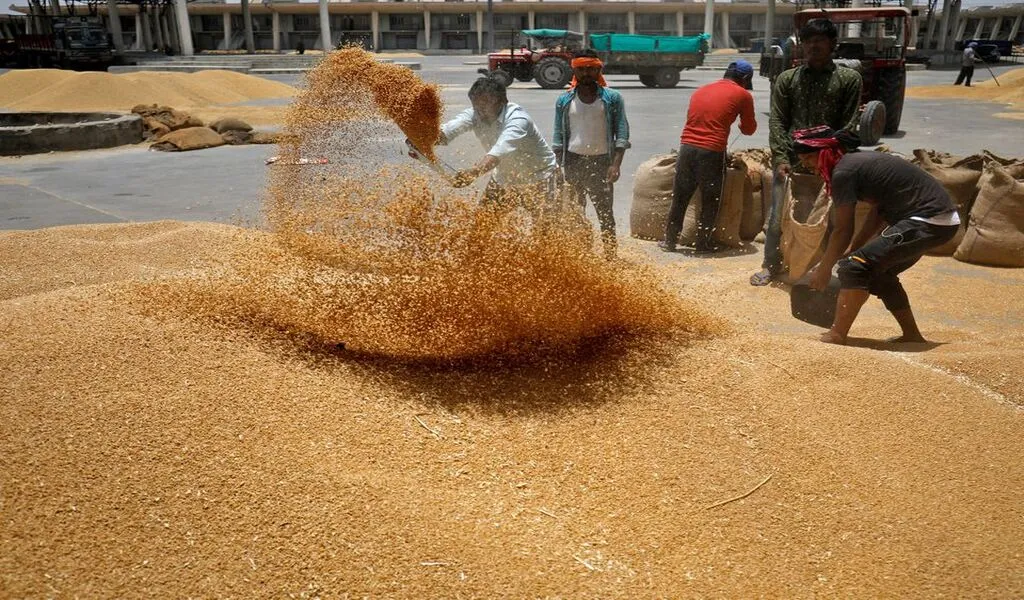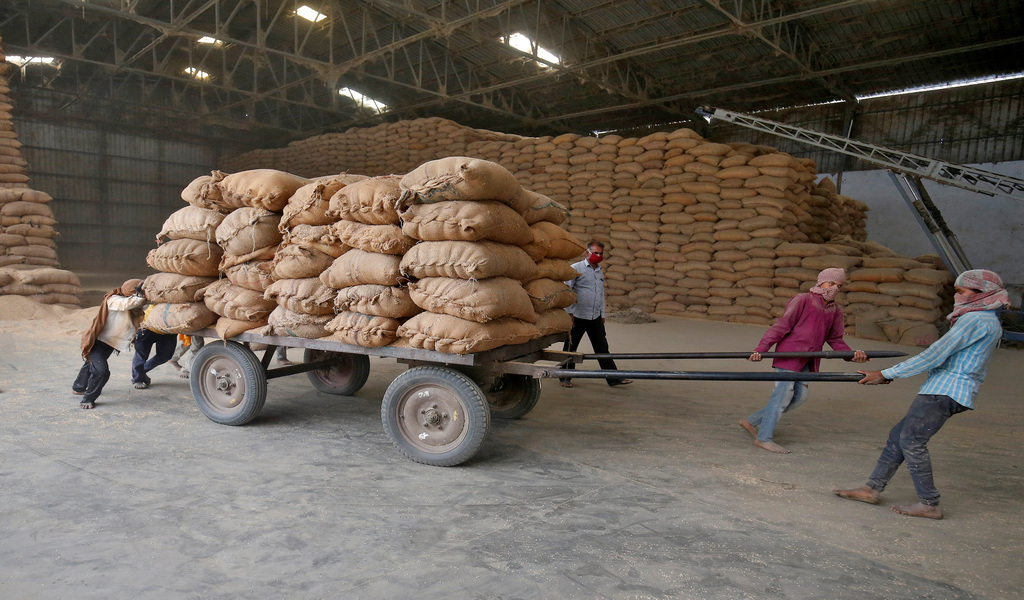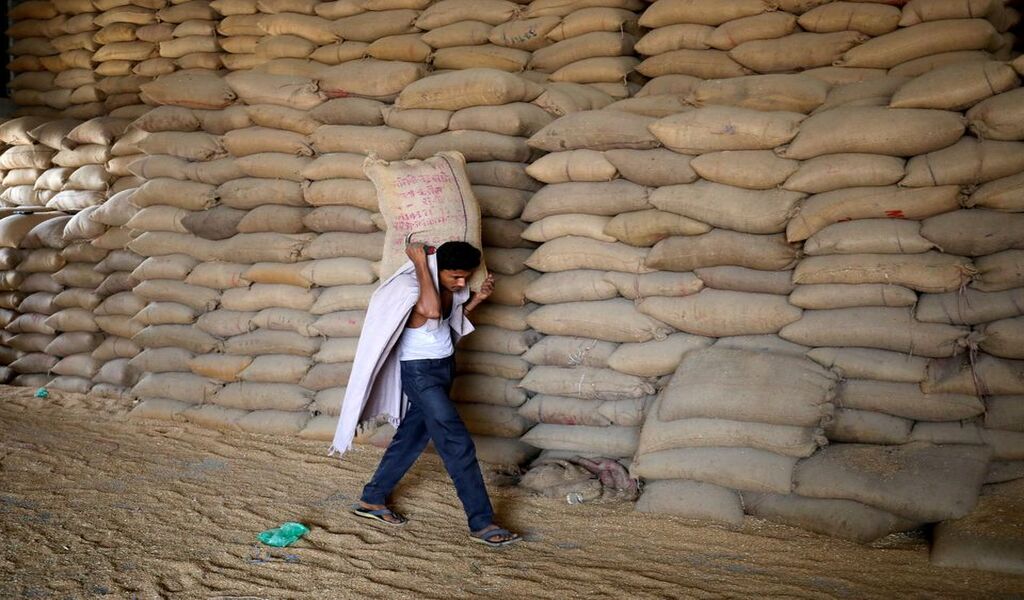News Asia
COVID-era Free Food Program Replaced With A Cheaper One In India

NEW DELHI – On December 31, India will stop its free food programme from the COVID-19 era and replace it with a less expensive one that will save the government close to $20 billion over the course of the next year.
The government will end the free food programme after 28 months, according to India’s Food and Trade Minister Piyush Goyal, who made the announcement late on Friday.
This is because the economy has improved since COVID-19 instances and limitations have been loosened.
India’s hundreds of millions of impoverished people have been squeezed by the pandemic and its effects on the economy, particularly on high food costs, over the previous few years.

FILE PHOTO: Labourers move a cart loaded with rice bags inside a food processing unit, which was reopened after weeks-long shutdown to slow the spread of coronavirus disease (COVID-19), on the outskirts of Ahmedabad, India, April 20, 2020. REUTERS/Amit Dave/File Photo
Aside from other heavily subsidised foodgrains, the programme gave 5 kg (11 lb) of foodgrains to low-income households each month. The cost to the government since it began in April 2020 is around $47 billion.
Under the National Food Security Act, the government was also investing 2 trillion rupees ($24.16 billion) to give heavily subsidised food grains to approximately 75% of its rural and 50% of its urban population.
According to Goyal, the government would now make the heavily subsidised foodgrains free for the following 12 months.

A worker carries a sack of wheat for sifting at a grain mill on the outskirts of Ahmedabad, India, May 16, 2022. REUTERS/Amit Dave/File Photo
Families receive 35 kg of food grain per month for a price ranging from 1 to 3 Indian rupees (or $0.0121 to $0.0362).
While some priority groups receive 5 kg of foodgrains per person for the same price, millions of poor households gain.
According to an official who did not want to be identified,
“By discontinuing the free food programme from the pandemic era, the government will save at least $20 billion over the following 12 months since they will only spend on one food scheme rather than several programmes,”
Due to the increased distribution of wheat, the Indian government was having trouble managing its stockpile as local market prices shot up to all-time highs.
According to a dealer with a multinational trade business based in New Delhi, “the discontinuation plan means the government can now sell 2 to 3 million tonnes in the open market to calm prices.”
RELATED CTN NEWS:
Japan Releases A Record Budget To Increase Military Expenditures






























